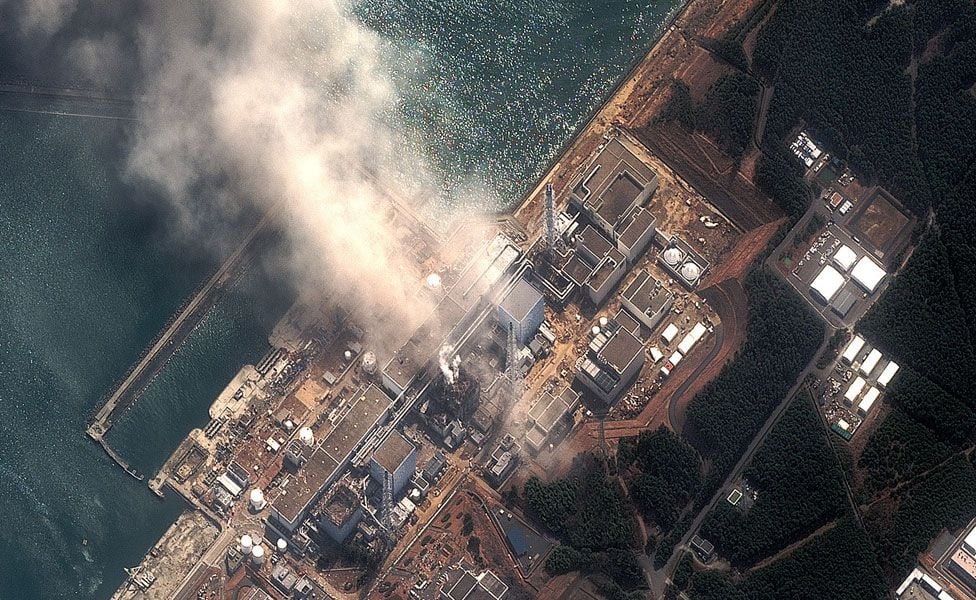
Japan today received the final approval of the International Atomic Energy Agency (IAEA) to dump into the Pacific water contaminated with radiation and purified from the Fukushima, a measure considered key to the dismantling of the plant but which comes surrounded by controversy and questions.
Why is polluted water going to be dumped into the ocean?
The Government of Japan approved in April 2021 its plan prepared together with the energy company Tokyo Electric Power (TEPCO) to dispose of the tons of water contaminated with radioactive materials that accumulate in the damaged Fukushima Daiichi plant as a result of the nuclear crisis. triggered a decade earlier by a devastating earthquake and tsunami.
The Japanese Executive, the operator of the plant and the Japanese nuclear regulator opted for the discharge into the ocean as the best way to solve the problem of limited storage for the liquid inside the nuclear facilities, and after ruling out other alternatives due to their technical complexity. or its higher cost.
The plan, which was prepared in collaboration with the IAEA, consists of gradually dumping more than 1.32 million tons of liquid contaminated with radioisotopes into the Pacific, after being processed to remove most of these highly radioactive materials and diluted in water. Marine.
Is it radioactive water?
The radioactive water generated at the plant after being in contact with the damaged nuclear reactors is filtered in circuits called ALPS (Advanced Liquid Processing System), capable of removing 62 types of radioactive materials, with the exception of tritium and carbon-14. , according to the Japanese authorities.
This purification process is repeated as many times as necessary in the drum and processing network until it is guaranteed that the concentration of radioactive materials is below the limits set by Japan based on international standards.
The Japanese authorities ensure that the remaining radioactive residues in the liquid after the purification and dilution process will not exceed 1,500 becquerels per liter before reaching the sea. This is equivalent to one seventh of the maximum set by the World Health Organization (WHO) for drinking water.
Is the dumping safe?
Both the Japanese Government and the IAEA maintain that the spill complies with international safety regulations applied to the nuclear industry and radiological protection, and point out that the presence of radioactive waste in waters close to the plant will be analyzed during the spill to detect possible anomalies.
According to the calculations of the Japanese authorities and the conclusions of the IAEA, the levels of radioactivity resulting from the discharge in the waters close to the plant will be practically identical to the environmental radiation, for which reason they consider that the radiological impact will be “insignificant” for health human and the environment.
However, certain voices in the international scientific community, including the National Association of Marine Biological Laboratories of the United States (NAML), have called for stopping the spill, considering the data provided insufficient to justify its safety.
The local Fukushima fishing industry, the Pacific Countries Forum and neighboring countries such as South Korea and China have also protested or expressed concern about its possible impact.
Japan also argues that discharges of tritium-contaminated water into the sea are common practice in the nuclear industry, in some cases with much higher concentrations than expected at Fukushima.
When is it going to take place?
The Japanese government indicated that the spill would begin from an undetermined date this summer. Once the final IAEA report on it has been presented, the Executive will analyze its conclusions before making a final decision to proceed with the discharge of the liquid.
The huge amount of contaminated water that accumulates in the plant -and which continues to grow daily-, together with the regulatory safety limits, mean that the discharge can last several decades and even extend to the same horizon estimated for the dismantling of the the plant, between 2040 and 2050.
Source: EFE
Source: Gestion
Ricardo is a renowned author and journalist, known for his exceptional writing on top-news stories. He currently works as a writer at the 247 News Agency, where he is known for his ability to deliver breaking news and insightful analysis on the most pressing issues of the day.












